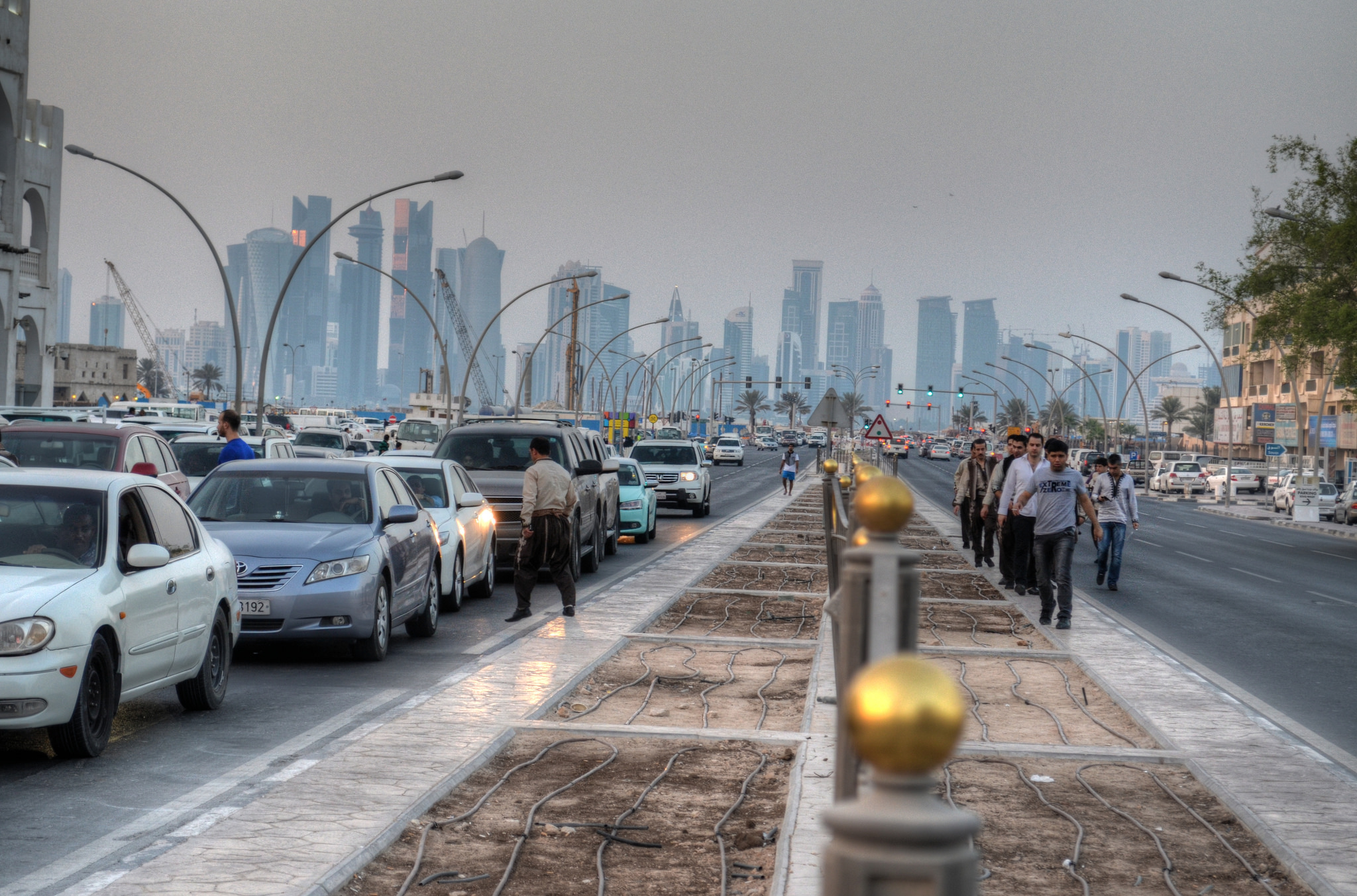One of the richest countries in the world is running out of food.
Grocery stores in the Qatari capital Doha were bustling after five Arab allies declared on Monday that they would sever all diplomatic ties with the kingdom, including a complete halt to all land, air and sea traffic.
Shoppers reportedly piled their shopping carts high with essentials like milk, rice and diapers. Qatar imports around 90 per cent of its food, much of it through its sole Saudi land border crossing.
The panic ensued despite reassurances by the government that shipping routes and airspace would remain open for imports. “The Qatari government will take all necessary measures to…thwart attempts to influence and harm the Qatari society and economy,” a government statement said.
Hotel workers and cab drivers also expressed worry that profits would take a hit. Thousands of Saudis travel to Qatar on holiday during Eid al-Fitr, which marks the end of Ramadan, the Muslim holy month of fasting that is currently underway.
The sudden consternation is remarkable in a country as financially and politically stable as Qatar. Just fifty years ago, the tiny island peninsula — roughly the size of Connecticut — was a small fishing village. It now has colossed into a major player on the world stage, with a zero per cent unemployment rate and citizens who are the richest in the world per capita.
And while strained ties with the Saudi’s are nothing new for Doha residents, the clashes this time around suggest something different is afoot, namely, that the pompous, sword-loving monarchs in Riyadh will go to any length to realize their ambition of becoming the dominant power in the Middle East.
It all began on May 24 when a Qatari state-news website ran a news report suggesting that the Emir of Qatar had praised Iran during a speech to graduating military cadets. Qatar called the article fake and said hackers had taken over its website.
But the fire had been lit. Saudi newspapers and their powerful state-owned media affiliates grabbed the story and ran with it. Within twenty minutes of the hack, at 12:14 am, the networks had run analysis, implications, quotes, and tweets.
“According to the Qatari authorities, between 12:51 am and 3:28 am, the [Saudi] networks managed to find 11 politicians and analysts to interview on-air,” David Hearst, editor-in-chief of UK news outlet Middle East Eye and a former foreign editor for The Guardian, wrote in a column last week. “Fast work for a duty editor ‘reacting’ to a story in the middle of the night. He deserves a raise.”
Hearst points to another uncanny fluke: The coverage of the Emir’s speech was preceded by fourteen different op-ed pieces in the U.S. press about the danger to regional stability that Qatar represented.
Coincidence? Hardly.
Soon afterwards, Saudi and four other Arab allies blocked access to Qatar-based media, including the widely popular Al Jazeera channel.
“This is not a spat — it’s a pre-planned operation,” Hearst told Al Jazeera English on Monday. “The end result could be either Qatar radically changing its policy or regime change in Qatar.”
But the Qataris are no less cunning. Last Saturday, The Huffington Post began releasing what they claimed was the first in a series of emails taken from the inbox of Yousef al-Otaiba, the United Arab Emirates’ ambassador to Washington.
Otaiba’s emails to representatives of the Foundation for the Defense of Democracies, a pro-Israel think-tank in Washington, D.C., reveal a strong relationship betweenthe UAE and think tanks closely allied to Israel, along with Emirati criticism of Qatar and Kuwait.
As the emails seeped out, Saudi, the UAE, Egypt and Bahrain declared a complete halt to all land, air and sea traffic with Qatar, ejected their diplomats, and ordered Qatari citizens to leave the Gulf states within fourteen days.
Is there any conclusive proof that Qatar was behind the leak? No, and there probably never will be. But judging from the rigorous coverage Al Jazeera English is devoting to it, and Doha’s own grimy history of playing both sides (Al Jazeera Arabic, for example, offered fanfare coverage of Trump’s recent visit to Saudi Arabia — including following the tune of Iran being a regional threat — while reporters from its English affiliate offered a more even-handed narrative), it’s hard to see who else would benefit from such a leak.
And what of Iran? That once rogue nation who now, in the midst of this narcissistic Gulf squabble, seems to look more pragmatic than ever?
Contrary to Saudi propaganda, Qatar and Iran are far from sharing political and ideological positions on the conflicts in Yemen and Syria. They do, however, share exploration rights to the world’s largest gas field — a 9,700-sq-km expanse that holds at least 43 trillion cubic metres of gas reserves. The reserve, some analysts say, is essentially what obliges Qatar to maintain ‘a middle position’ with Iran.
It will be interesting to see who swoops in to help Qatari store owners as they struggle to stock their food shelves over the next few weeks. On Monday, an Iranian official reportedly said his country was capable of exporting food to Qatar by sea, and that food shipments could reach the country in twelve hours.
You can just imagine the field day the Saudi press will have when that happens.
This post originally appeared on Muftah.
Image: Flickr/Stephen Downes
Like this article? Please chip in to keep stories like these coming.




